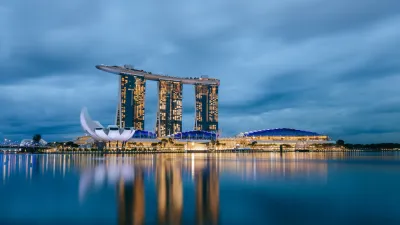Bhutan’s Bold Plan: Building the World’s Capital of Mindfulness

What if a nation chose mindfulness as its next export industry?
When I read about Bhutan’s masterplan to build a 2,500 km² “Mindfulness City" in Gelephu, it felt both audacious and oddly inevitable.
Memories from a past trip came rushing back—quiet, unpolished encounters that made mindfulness feel less like a personal habit and more like a national instinct. Those moments are why this masterplan doesn’t strike me as wishful thinking, but as something Bhutan might actually pull off. Let me share three of 3 my personal stories.
1|The climb to Tiger’s Nest
It took me three hours to reach Tiger’s Nest, on foot, with no ponies or porters in sight. The trail wound through dense forest, alternating between cool shade and sudden openings to the valley below, until the monastery finally appeared, clinging to the cliff like a secret.
Perched 900 meters above the Paro Valley, Tiger’s Nest is Bhutan’s most iconic monastery and a national symbol of Buddhist devotion. The climb is not hardship for its own sake. It is designed to instill reverence for both nature and religion. It slows you down, strips away distractions, and makes arrival something to respect and sincerely pursue. If Bhutan were to build a city around mindfulness, it would likely borrow from this logic.
2|A coffee table in the rice field
One afternoon, my guide stopped in the middle of an open patch in a rice field. He unpacked a foldable table and a small coffee kit. There was no barista, no sign, just two of us sitting in the sun, coffee cups warm in our hands, looking out at the mountains while green rice stalks swayed around us.
We drank slowly, letting the view do most of the talking. When we finally left, there was nothing to show we had been there—only my footprints between the rows. In its own way, that moment held the same principle Bhutan now wants for its Mindfulness City: building spaces that serve people without disturbing the nature.
3|A decision to return home
A local girl told me, “I’m going back after graduation.” She is my Bhutanese friend’s daughter, studying insurance in London. In many countries, young people dream of staying in global cities, chasing bigger paychecks and metropolitan lives. She chose the opposite. “I want to bring what I’ve learned back home,” she said.
It’s not nostalgia, but a sense of cultural belonging. From her, I could see the real pull of the Mindfulness City. Its promise rests not only on infrastructure or policy, but on the deep-rooted values of its people.
From moments to masterplan
According to the The Gelephu Mindfulness City Masterplan, it will rise in the southern border town in Gelephu as a Special Administrative Region with its own laws, tax system, and governance.
The masterplan, led by the Danish architecture firm BIG with Arup and Cistri, covers more than 2,500 square kilometers and draws on Bhutan’s Gross National Happiness framework. Designs are including inhabitable bridges that serve as housing and markets, hydropower dams built as temples, edible landscapes, and low-carbon transport systems that make walking and cycling part of daily life.
New rail and road links to India’s Assam state aim to position the city as a hub for wellness industries, sustainable tourism, regenerative agriculture and and digital services.
Mindfulness as Industry & Strategy
From the steep climb to Tiger’s Nest, to coffee in a sunlit rice field, to a young woman’s choice to return home, Bhutan’s culture already treats mindfulness as a way of living. The Gelephu Mindfulness City is an attempt to turn that ethos into a growth engine, anchoring industries such as meditation tourism, spiritual retreats, wellness education, and integrative health.
If it succeeds, Bhutan could offer a blueprint for small nations navigating globalization—not by racing to the bottom on costs or chasing scale, but by doubling down on values as a competitive advantage.
It would not just build another city. It would pioneer a model where economic competitiveness is measured not by output alone, but by the quality of attention, mental clarity, and cultural depth a place can offer the world.
No spam, no sharing to third party. Only you and me.



Member discussion